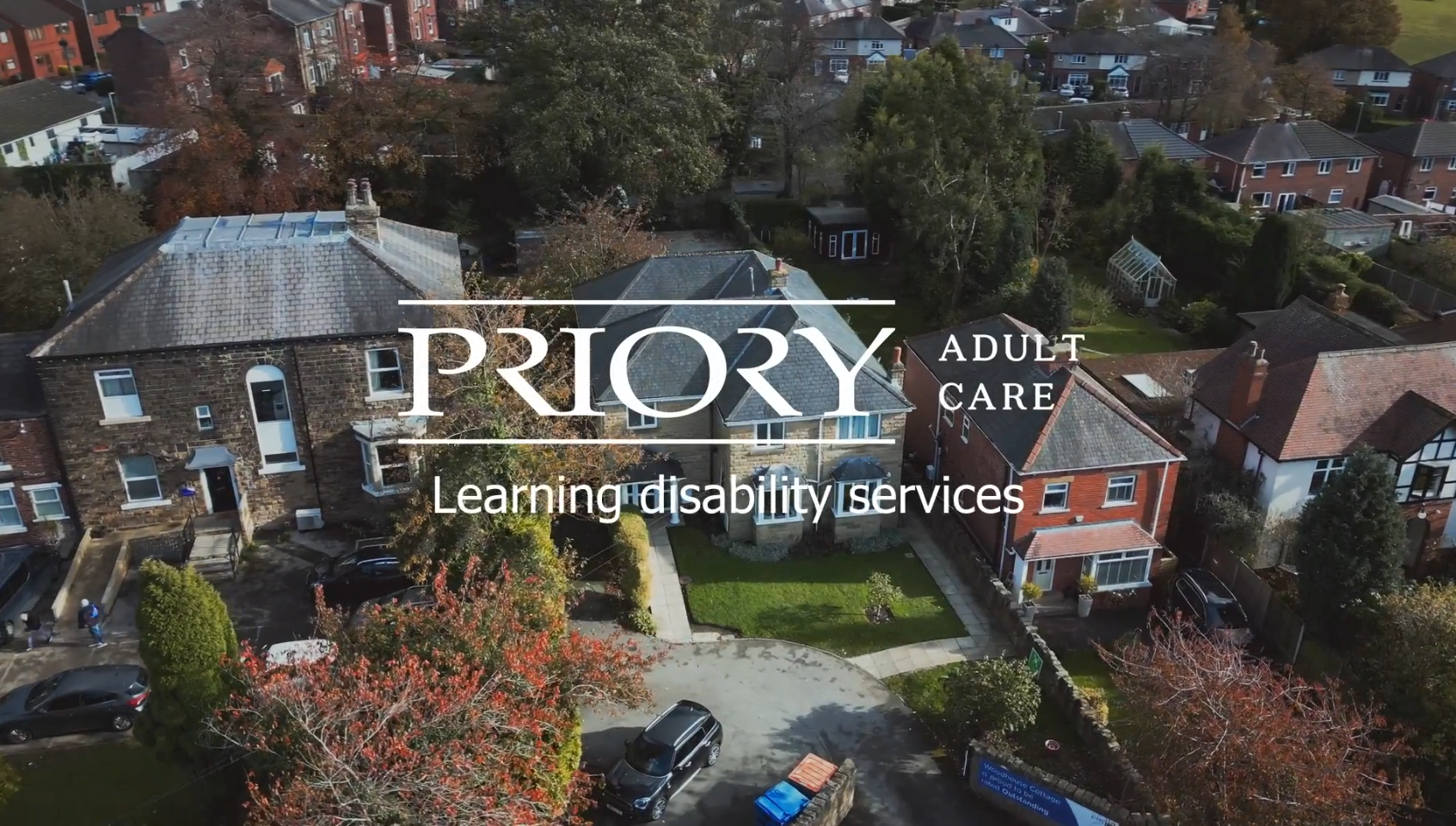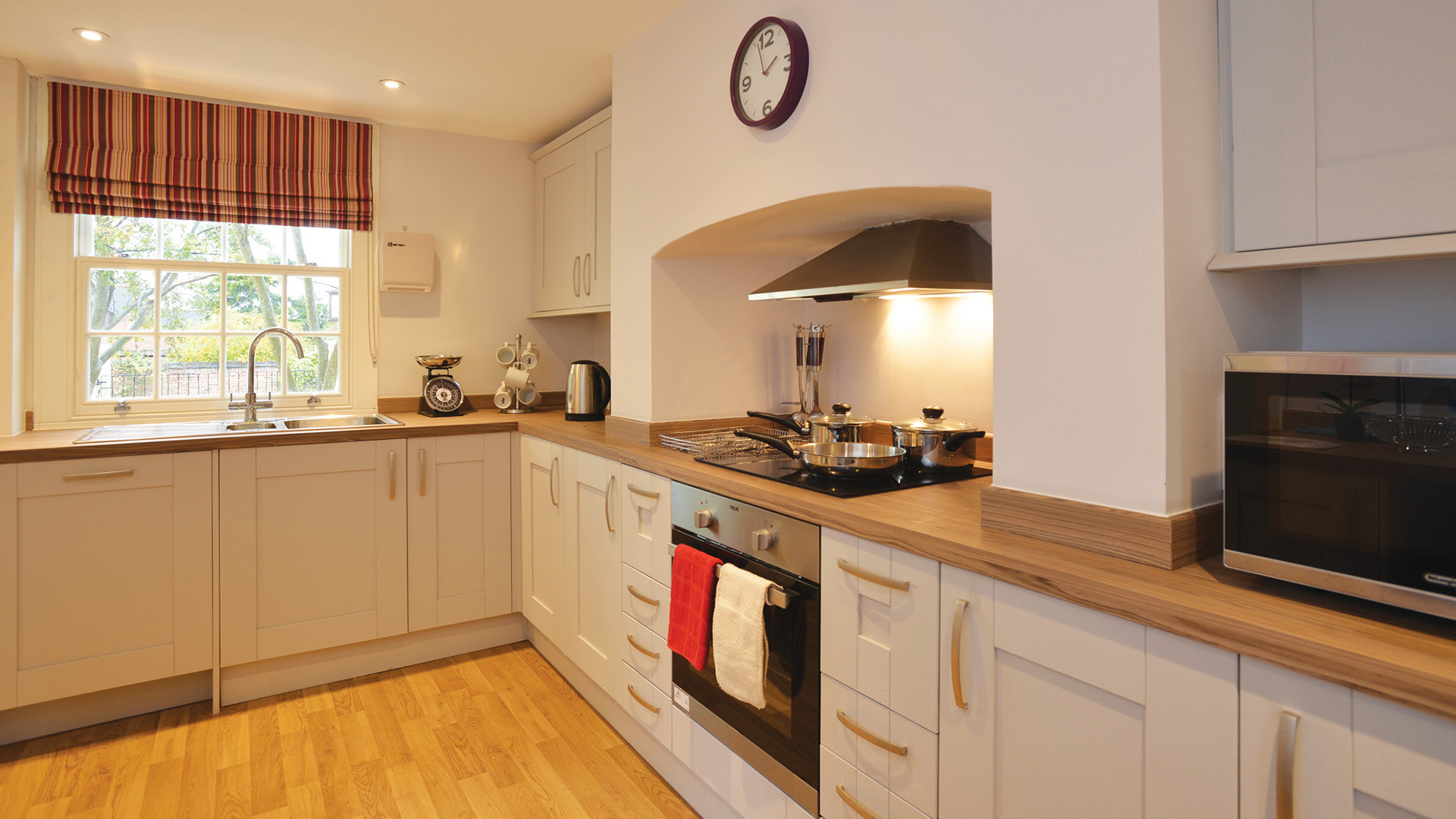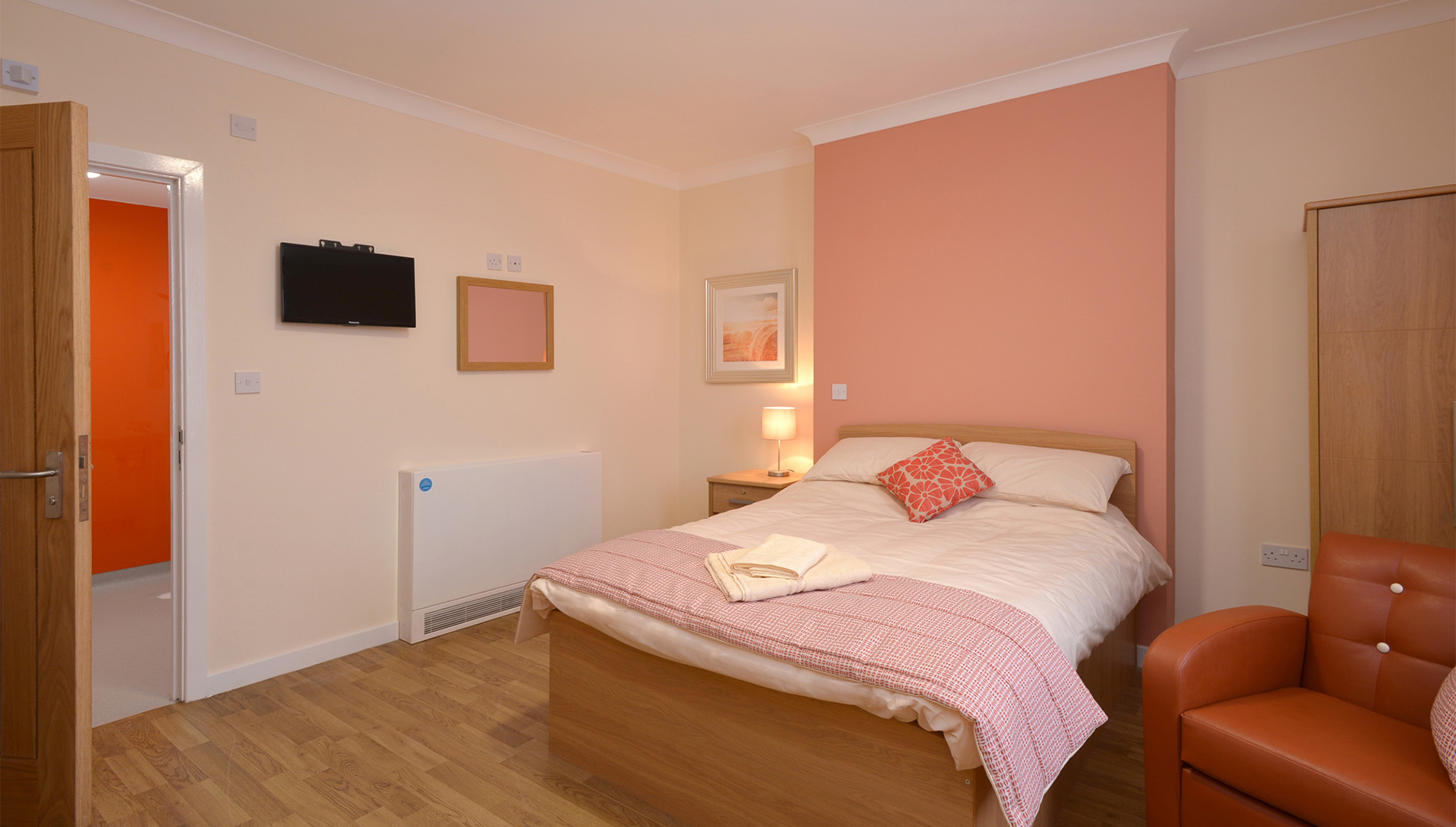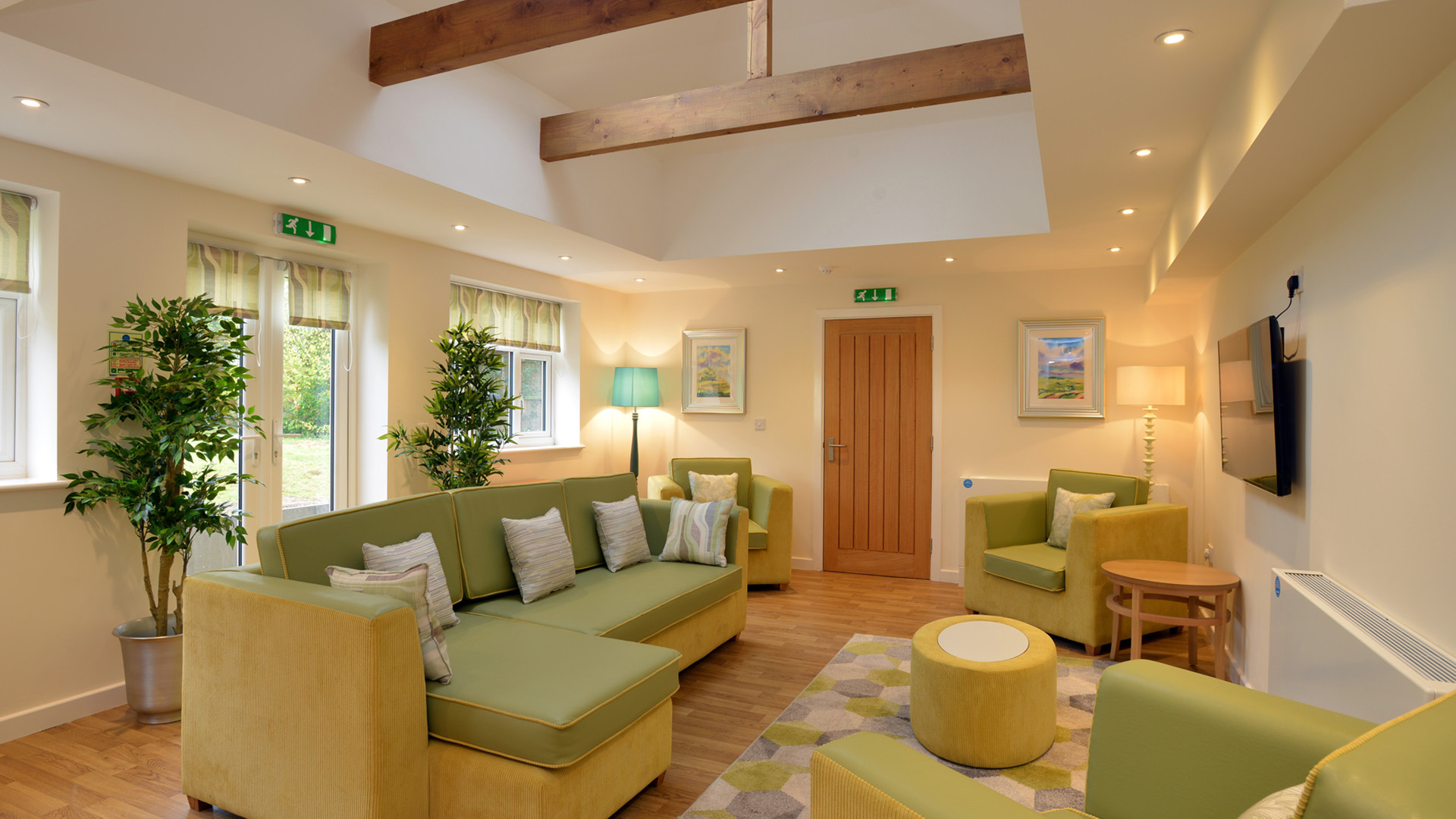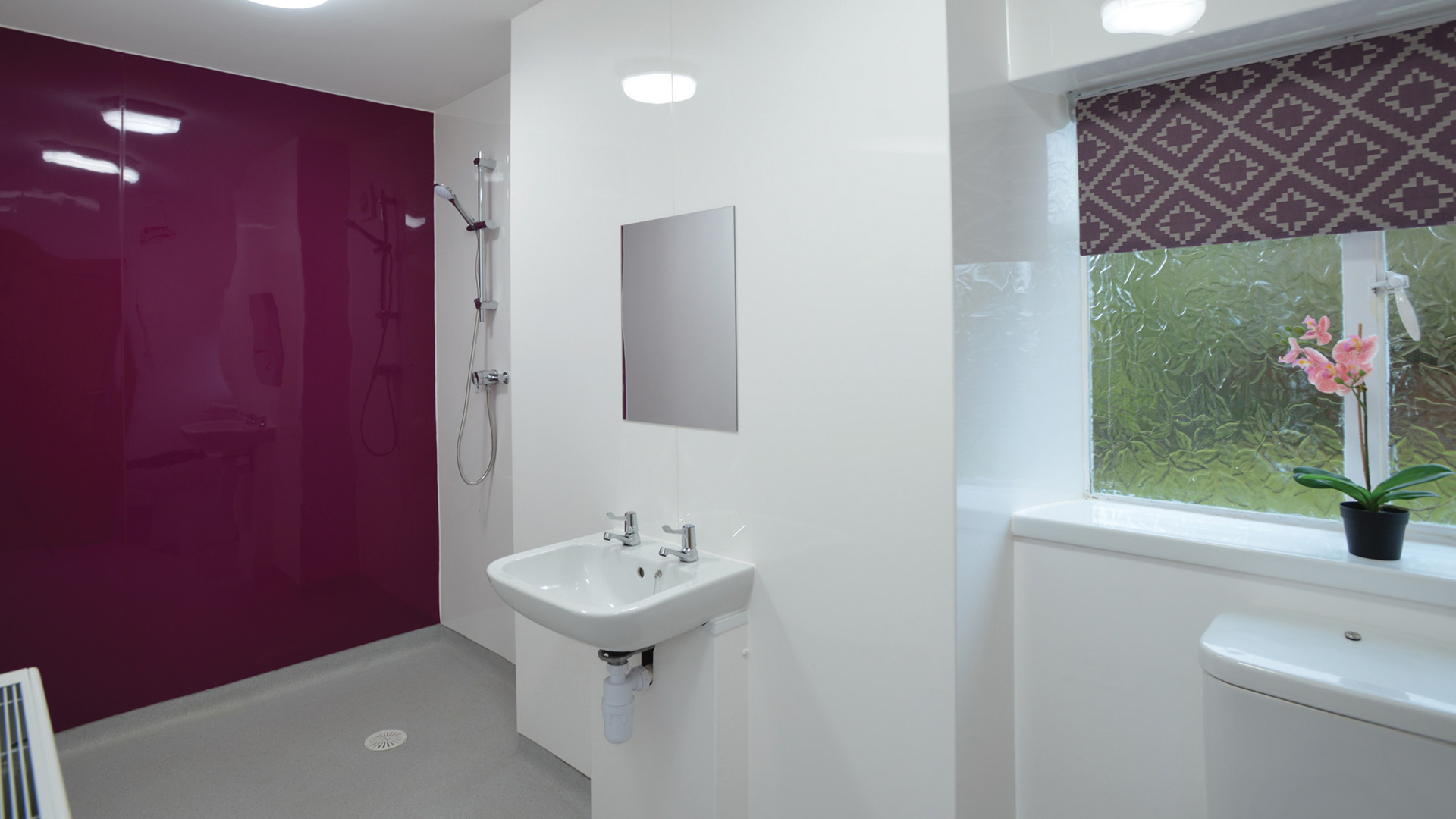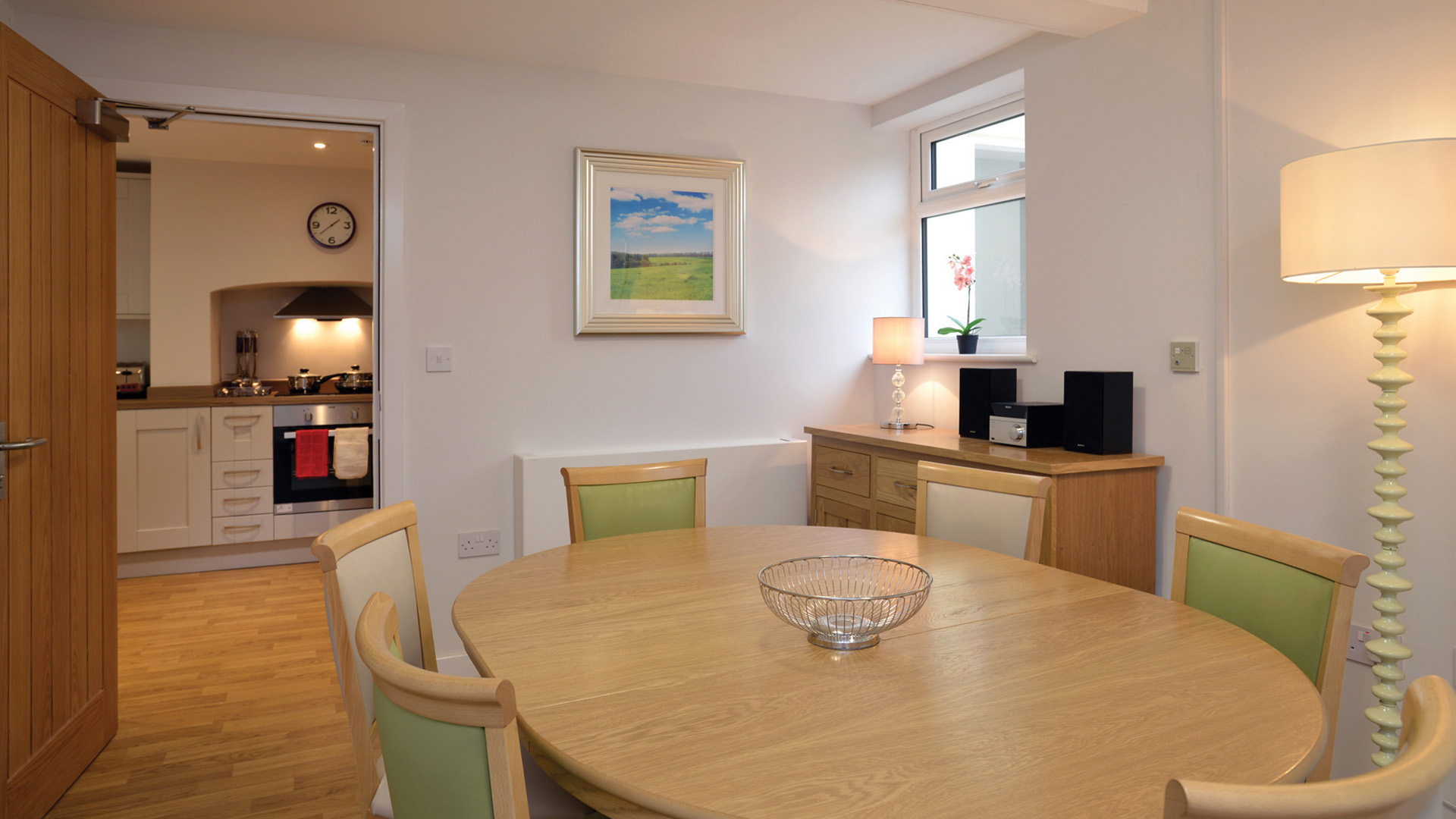About this location
Wiggington Cottage is located in the heart of the beautiful village of Wiggington, in Tamworth, Staffordshire. Our specialist service provides residential support for eight males and females with a primary diagnosis of Prader-Willi syndrome (PWS). Our home is on a quiet street, near the small village.
Our team are dedicated to improving the health and wellbeing of the people we support, helping them to achieve positive outcomes. We want to help each person we care for to have a healthy, happy, and independent life, within a safe and welcoming home.
We can also support those who have additional presentations and support needs, alongside their primary PWS diagnosis. This includes people with:
- A learning disability
- Autism
- Mental health needs
- Behaviours that may challenge
Services at a glance
Click here to enable this content
About our service
Our facilities and environment
The home is located in a heritage building, which has been extended and has lots of open, bright spaces. We have a large communal garden area which residents enjoy spending time in. People staying with us can also relax in our two communal lounges which have a seating area, a television and computers. The site office is at the top of the garden in the cabin.
In summary, we offer:
- A large lounge with plenty of seating
- Kitchen and dining room
- Quiet room
We also have our own lovely garden, complete with:
- Secure fencing
- Lawn
- Patio
- Communal seating
We also have specialised equipment within the home, such as sensory lighting. In addition, we have a site vehicle to help us to meet the needs of the people we support.
Our bedrooms
All of our bedrooms are comfortable, welcoming and can be personalised to individual tastes. Our bedrooms have features such as:
- En-suite facilities, containing either a shower, a bath or a wet room
- Robust, low arousal furniture
Our approach to support
Everybody who lives at Wiggington Cottage has their own person-centred care plan, which is co-produced with input from the individual, their family members and professionals involved in their care. We aim to help everyone in our care to make their own choices about the support they receive. This may include support in a number of areas, such as going out in the community, personal care, cooking and cleaning, managing finances and maintaining family relationships.
Our support approaches at Wiggington Cottage include positive behaviour support (PBS). We also have close links with a community multidisciplinary team, including a psychiatrist and intensive support team (IST). We will also work with dieticians to develop healthy eating plans to help our residents maintain or lose weight, as required.
In addition, we use tools such as the Outcomes Star™ to support our residents to achieve their goals. The lengths of the placements that we offer at Wiggington Cottage are long-term residential.
Activities
Everyone who lives at Wiggington Cottage has their own personalised activities planner and are encouraged to take part in activities which are meaningful and fulfilling to them. Our dedicated team organise a variety of activities at the home, as well as out in the community.
Wiggington Cottage is ideally situated within accessible distance of a variety of outdoor and physical activities. There is a gym nearby, as well as a swimming pool and a variety of nature walks. We are also near a motorway, with good access to amenities further afield.
We focus on supporting our residents to grow their independence. For some people, this may mean developing their daily living skills within the home. For others, this could be accessing work or educational opportunities in the local community.
Exclusion profile
- Those who do not have PWS
Pathways
Through our network of healthcare, residential and supported living facilities, we provide unique care pathways which help the people we support to progress towards greater independence. Every individual we support is provided with a bespoke pathway plan, tailored according to their individual needs. We aim to ensure that each person is supported to live a fulfilling and active life in the community.
Our team
Our highly experienced team consists of:
- Service manager
- Deputy manager
- Senior support workers
- Support workers
- Activities co-ordinator
- Cook
Our team receive specialist staff training, designed to meet the needs of each individual we support. This includes:
- PWS training
- PBS training
- Dietary and weight loss awareness training
- PROACT-SCIPr-UK® training
A message from our site leader

We understand our residents’ needs and support them to make positive changes and adopt routines which work for them. We believe this helps alleviate any risks and stress as their care is based on their individual’s needs and the aims they want to achieve
Wiggington Cottage’s site leader
Comments from our residents and their family and friends
Moving to Wiggington saved my life. I have lost over 18 stone since living here, and I will keep going until I reach my goal. The staff have helped me every step of the way. I can now do more walking and spend more time in the gym or doing my chosen exercise classes. The food is nice and has helped me lose the weight
Family and friends FAQs
How does home leave work?
We support our residents to attend family events and visit home. We will work with the resident and their relatives to ensure possible risks are managed and that everyone is supported based on family need and preferences. Home leaves often mean we drop home or pick up our residents, and we will work to risk management plans to support positive contact.
Can friends and families visit?
Family and friends are welcome to visit and participate in activities. We do ask that we are informed in advance of all visits as some residents may become stressed or anxious when unknown visitors arrive. Unfortunately, we cannot cater for visitors to stay overnight.
Will I be involved and kept up to date with the progress of my loved one’s care and support?
Yes, we provide updates and communications as and when is required, for example, after medical appointments or to share positive stories. This is often arranged by the key worker or the senior support worker on duty, so you get an accurate handover and an update on things have happened, by those who were present.
Will my loved one be able to have a phone or call me?
Everyone who stays with us are supported to call their loved ones. Some people may be able to have a mobile phone, but will be based on residents’ specific needs and safety.
What are the bedrooms like?
Items can be added or removed based on residents’ preferences, often items can be damaged or broken and we support family’s to replace with the safest alternatives as and when could be required, based on residents’ needs and risk management plans.
Are external doors kept locked?
Yes, our external doors are kept locked, for the security of the people who live here. We have a secure garden area and smaller sitting area where residents can freely exit and enter the back of the building. Deprivation of Liberty Safeguards (DoLs) may be in place, as well as contracts to agree on some blanket restrictions which keep everyone safe.
What do residents eat and how do meal times work?
Residents are supported to choose what they want to eat, and, where possible, prepare what they want to eat. This area is fully supported and staffed to prevent unnecessary risk to any individuals. Some people cannot access the kitchen area due to known risk and anxieties; in this case, staff will take a leading role in the food preparation process.
We generally work to a calorie-controlled four week rolling menu, including meals and snacks, which offers choice whilst promoting healthy diets. We work closely with healthcare professionals and the PWS Association to ensure diets are well-managed and meet people’s needs. Diets will also be tailored to individual requirements, taking into account special dietary needs, a person’s weight, and other factors.
How does laundry work?
Our team will ensure that residents always have access to clean clothes and bedding. We have a utility room with laundry facilities, which residents can use either independently or with the support of their allocated support worker. We promote independence in all areas of daily living tasks, and are led by residents different support needs.
Who does the housekeeping and domiciliary tasks?
Most of our residents undertake domiciliary tasks such as cleaning, and there is a rota in place to assign tasks. Our care team support the residents with these tasks, we promote independence as much as is possible and staff support to ensure all tasks are met to a high standard. Communal areas and house washing is done at night, during the day resident share tasks supported by their key worker to ensure tasks are carried out to a high standard, and task allocation is also discussed in our monthly resident meetings.
Is there anything they can’t bring or have?
We store and manage all food and drink on site, this is in line with best practice when supporting people who have PWS. Food storage areas are kept locked to reduce the risks to our residents. Residents have a key to their bedrooms to keep personal items secure and safe, supported by staff. Staff carry a master key, and where is necessary will access rooms based on safety assessments.
How do activities work?
Every resident has a tailored activities planner, which will include both in-house activities as well as visits into the community. Their key worker may use a variety of communication tools to ensure the resident can have an input into the planning of activities. Residents make ‘wish lists’ that we work to; trips, holidays, and days out are planned with each resident’s preference at the forefront. Residents save money with family throughout the year to manage at least one holiday and day trips week-to-week.
How will residents be supported with their behavioural needs?
Residents who have a history of behaviours that challenge may be provided with PBS, this is an internal element of support Priory can tailor to the individuals’ needs and is costed separate from care and support hours. We have close links to the local IST, psychology and psychiatry support in Staffordshire, referrals are made as and when is needed to ensure a joined-up approach. We use the PROACT-SCIPr-UK® framework, which means we focus on least restrictive practice, ensuring this is embedded in everything we do.
Do residents and families have an input into the care plans?
Yes, we work with social workers, family members and residents to develop care plans which are in the best interests of our residents. We use a variety of communication tools, if needed, and work with health professionals to aid each resident in having a say about every aspect of their care. Care plans are regularly reviewed, and family members will be asked for their input, where appropriate.
What are the car parking facilities?
We don’t have many car parking spaces at the home, but there are spaces on the road outside.
What is the smoking policy?
We have a designated area outside for residents to smoke or to vape.
What are your fees and how are they funded?
Our fees can vary, and are based on an assessment of each individual's needs. Many people are eligible for financial help towards the cost of support, and this funding can be accessed by contacting your local authority. Once funding has been agreed, we will work with your local care team to put together a bespoke package of care. Please note, referrals for NHS or Local Authority funded services must come from a referring organisation.
How to make a referral
Our service provides high quality support to people with varying levels of need. Referrals can be made through the individual’s social care team or, if relevant, their local health authority. If you are a professional looking to make a referral, please call us or fill in our enquiry form.


